Spain’s festivals give visitors the best way to understand Spanish culture and the past. Festivals in Spain make people celebrate national traditions through party events that honour local beliefs and celebrations. The special events create unforgettable moments, either by throwing food like in Tomatina or by participating in holy processions at Easter. Festivals bring excitement through bonding with locals while experiencing regional musical performances and food tastings. The festivals in Spain offer experiences that bring you pleasure and entertainment, plus develop connections among attendees.
Top 10 Famous Festivals In Spain
Spain hosts many vibrant and entertaining festivals throughout the year. These events feature activities like tomato throwing and dancing in bright costumes.
1. La Tomatina
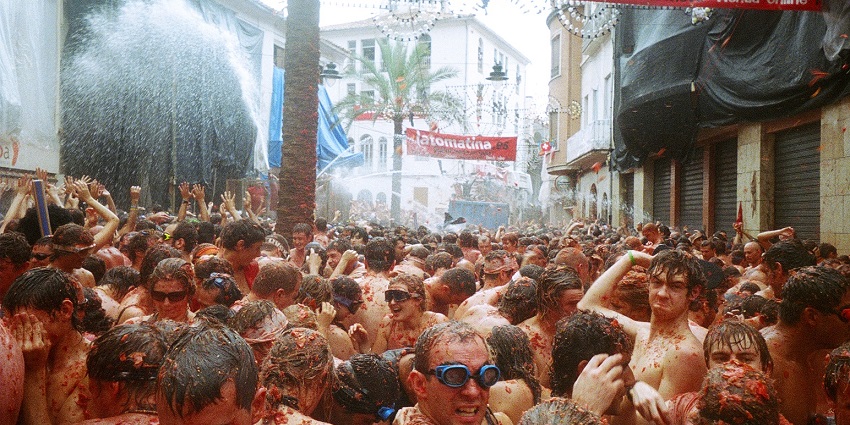
Photo: Graham McLellan / Wikimedia Commons
A popular event in Buol is La Tomatina, which involves gathering fresh tomatoes. Participants come from all over the world at the town square. It starts with a greased pole race. Afterwards, trucks transport numerous bags of ripe tomatoes. People engage in playful behaviour by throwing tomatoes at each other. After the tomato battle, water hoses are used to clean the streets. It’s wise to wear goggles and gloves for protection. The festival of La Tomatina is extremely exciting and brings a lot of happiness.
Location: Bunol, Valencia
When: Last Wednesday of August
2. Semana Santa / Holy Week
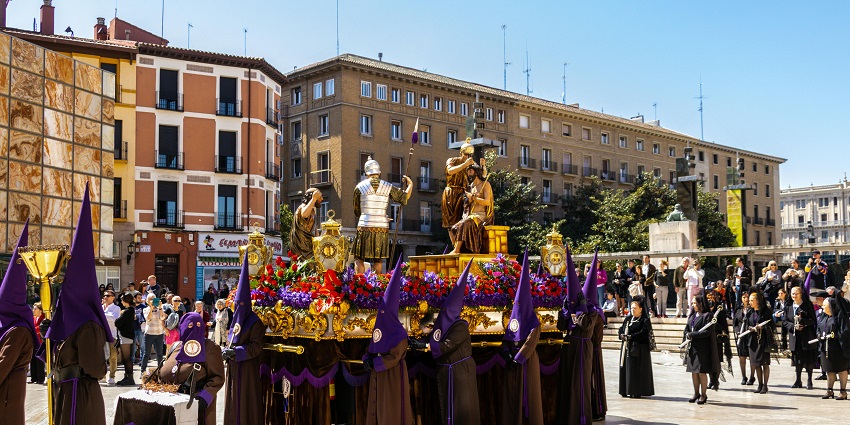
Photo: Sebastián Valencia Pineda / Pexels
Spain celebrates Semana Santa, the week before Easter, as its significant religious event. Many cities organise public parades that include large statues of saints throughout the streets. The processions are well-organised and draw many visitors who come to see the unique and beautiful displays. People who take part wear ceremonial clothes alongside lit candles and march through the streets to slow background music. It merges religious ceremonies with beautiful art displays and offers a chance for families to spend quality time together.
Location: Nationwide, especially Seville
When: March or April (Easter Week)
3. Feria De Abril
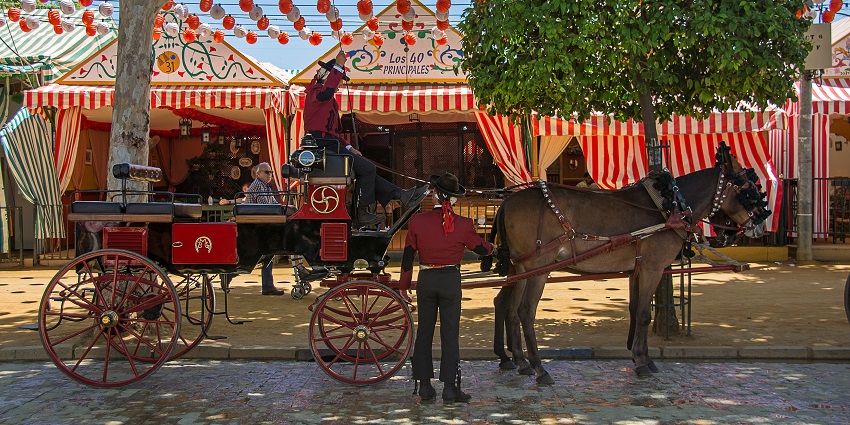
Photo: Anual / Wikimedia Commons
Feria de Abril is a vibrant, week-long festival held in Seville two weeks after Easter. Locals and visitors dress in colourful outfits, enjoy flamenco music and dancing, and gather with family and friends to share food, drinks like rebujito, and laughter. Horse-drawn carriages parade through the fairground by day, while at night, the area glows with lights. With rides, live music, and performances, the joyful atmosphere captures the warm-hearted spirit of southern Spain, making it a truly unforgettable cultural celebration.
Location: Seville, Andalusia
When: Two weeks after Easter
4. Carnival Of Santa Cruz De Tenerife
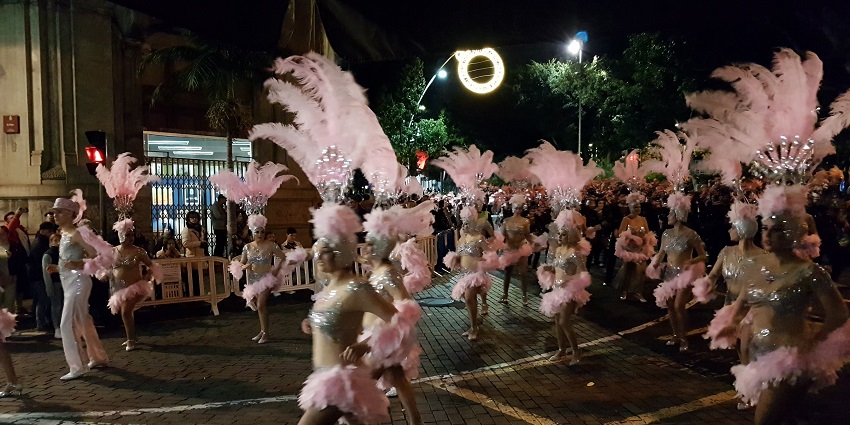
Photo: Joergsam / Wikimedia Commons
One of the world’s largest carnivals takes place annually in Santa Cruz de Tenerife, drawing crowds from around the globe. The celebration is bursting with music, dancing, and colourful costumes. Parades with vibrant floats fill the streets day and night, while people of all ages join the fun. A highlight is the humorous “Burial of the Sardine,” marking the start of Lent. This lively event captures the joyful spirit and welcoming culture of the Canary Islands, making it a must-see experience.
Location: Santa Cruz de Tenerife, Canary Islands
When: February or March
5. San Fermin / Running Of The Bulls
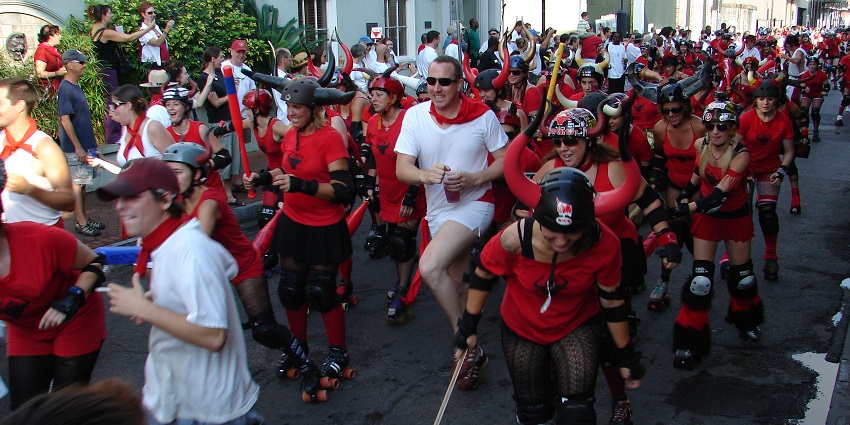
Photo: Howie Luvzus / Wikimedia Commons
San Fermin is one of Spain’s most famous festivals, held each July in Pamplona. It’s best known for the thrilling daily bull runs, where participants dressed in white with red scarves run ahead of the bulls through the streets. The festival begins with the “chupinazo” rocket and features fireworks, music, and parades. Many spectators watch safely from balconies, while trained assistants ensure safety remains a priority. This energetic celebration blends tradition with excitement, showcasing the vibrant spirit of Spanish culture and drawing visitors from around the world.
Location: Pamplona, Navarre
When: July 6 – July 14
6. Las Fallas
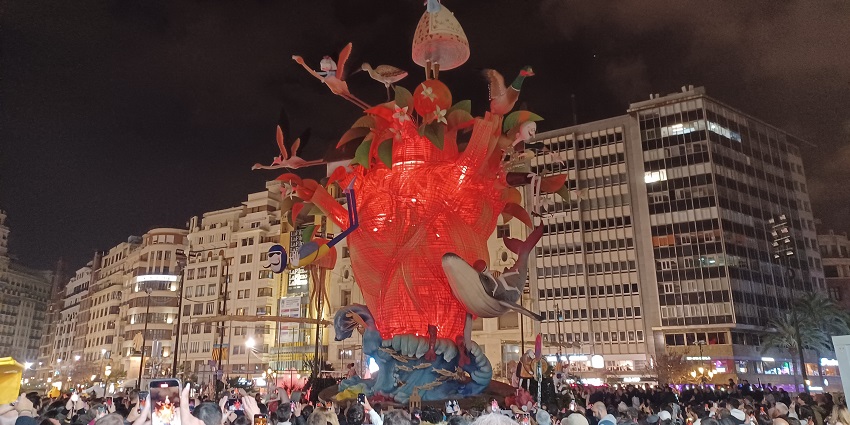
Photo: Simon Burchell / Wikimedia Commons
Valencia hosts Las Fallas each March, a spectacular festival blending fire, art, and tradition. Local groups build large paper sculptures called “fallas,” often clever or humorous, displayed across the city. On the final night, these creations are dramatically burned in grand bonfires. Crowds gather to celebrate, dressed in traditional costumes, enjoying music, fireworks, and lively street performances. Families and children join the festivities, creating a joyful atmosphere. Las Fallas beautifully combines satire and heritage, making it one of Spain’s most iconic and unforgettable celebrations.
Location: Valencia
When: March 15 – March 19
7. Cordoba Patios Festival
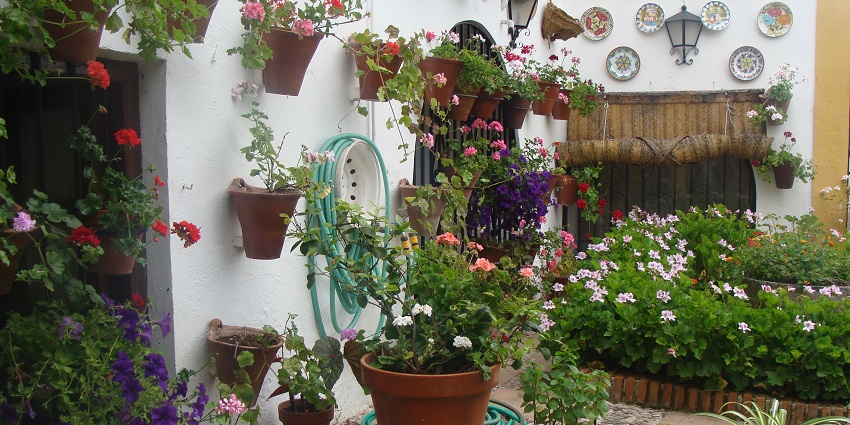
Photo: Graham Stanley / Wikimedia Commons
Each May, the people of Cordoba open their flower-filled patios to the public for the Patios Festival. These private courtyards, decorated with colourful blooms, charming fountains, and artistic touches, create a serene and fragrant atmosphere. Visitors wander through narrow streets, admiring the floral displays while locals offer stories, snacks, and warm hospitality. Town squares come alive with music and flamenco performances. The festival captures the beauty of daily life in southern Spain, offering a peaceful and joyful glimpse into Cordoba’s rich culture and community spirit.
Location: Cordoba, Andalusia
When: First two weeks of May
8. Fiesta De San Isidro
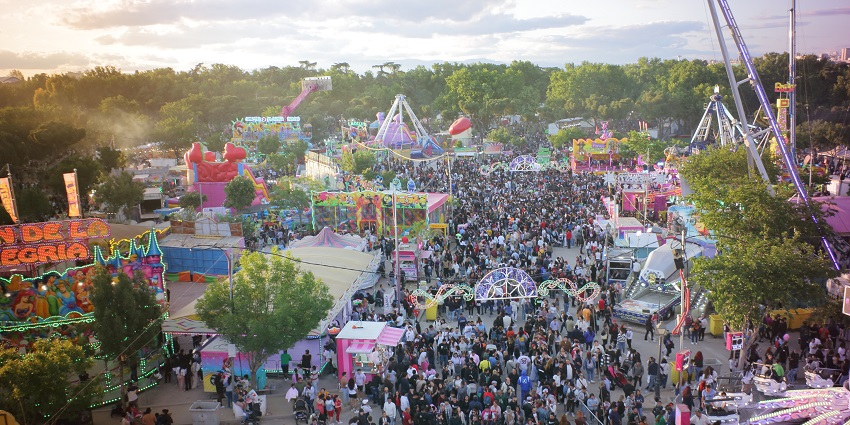
Photo: Javier Perez Montes / Wikimedia Commons
San Isidro is Madrid’s grandest festival, held in honour of the city’s patron saint. Locals dress in traditional outfits and gather in parks for shared meals, music, and dancing. Colourful parades fill the streets, alongside puppet shows and joyful celebrations. At night, fireworks light up the sky, marking the end of each festive day. Bullfighting events are also featured as part of the tradition. The whole city takes part, proudly celebrating Madrid’s culture and history. San Isidro reflects the vibrant spirit and heartfelt joy of its people.
Location: Madrid
When: Around May 15
9. Haro Wine Festival

Photo: BigSus / Wikimedia Commons
The Haro Wine Festival happens in Haro, a town in La Rioja. At this festival, there’s a fun event called the Wine Battle. In this event, people enjoy themselves by throwing red wine at each other. It all begins with a walk to the Cliffs of Bilibio. Once there, everyone starts pouring and spraying wine on one another. Those who are dressed in white clothes are soaked, and they turn purple. In addition, there are food vendors, bullfights, and dances. Following the event, there are parties and music throughout the entire town. It’s a cheerful and light day. The festival has a lot of laughter, fun, and friendship. The Haro Wine Festival is ideal for people who enjoy wine and happiness.
Location: Haro, La Rioja
When: June 29
10. Festa Major De Gracia
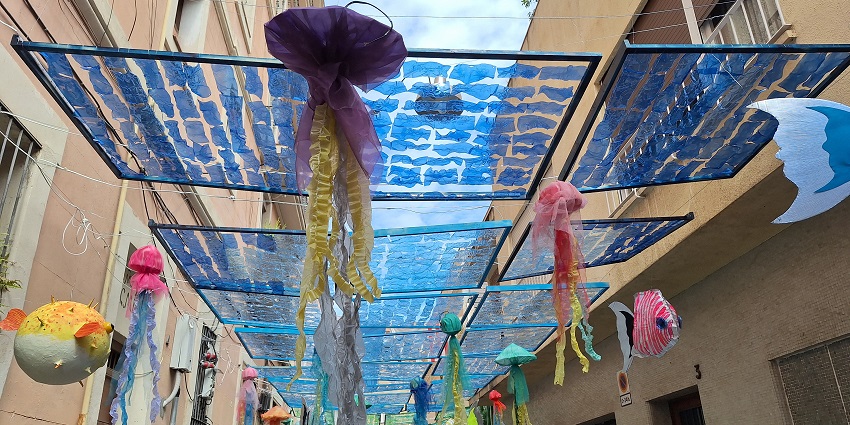
Photo: Pere López Brosa / Wikimedia Commons
Festa Major de Gracia is a vibrant festival held each August in Barcelona’s Gracia neighbourhood. Locals spend weeks crafting handmade decorations for their streets, each based on a unique theme like forests, fairy tales, or oceans. At night, the streets glow with lights, music plays, and the area transforms into a lively celebration. Visitors enjoy food stalls, local crafts, and small performances as they wander through the colourful displays. The festival highlights the creativity and community spirit of Barcelona, offering a warm, fun, and inclusive experience for all.
Location: Gracia, Barcelona
When: August 15 – August 21
Spain celebrates its local customs and happiness by bringing together different events featuring colourful tomatoes in Bunol and flower-laden courtyards of Cordoba. Festivals in Spain offer memorable celebrations that let everyone find their perfect experience based on musical tastes or food preferences. Embrace the vibrant culture and make unforgettable memories. Whether it’s lively festivals or historic sites, TripXL can help you organise an unforgettable Spanish adventure.
Cover Photo: CAPTAIN RAJU / Wikimedia Commons


 WhatsApp
WhatsApp
 Twitter
Twitter









